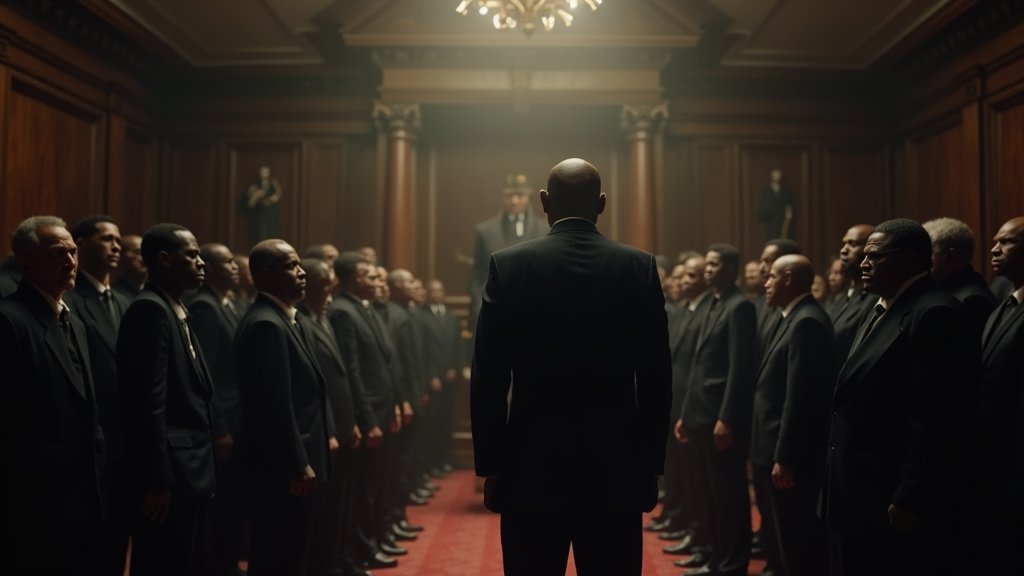The upcoming constitutional hearing on September 25, 2025, concerning the potential decriminalization of Obeah in Jamaica has ignited a fierce debate, pitting proponents of African spiritual practices against influential church leaders who fear the legalization would unleash “demonic forces.” The Unuchi Foundation, an Africana spiritualist non-profit, is spearheading the move, aiming to repeal the Obeah Act of 1898, which criminalizes the practice. This development has prompted significant pushback from Christian groups across the island, highlighting a deep-seated cultural and religious tension within Jamaica.
Historical Roots of the Obeah Act
The Obeah Act, enacted in 1898, has a complex and contentious history rooted in Jamaica’s colonial past. Originally criminalized in 1760 following Tacky’s Rebellion, a major uprising of enslaved people, the act was initially designed to suppress resistance and maintain control by slave owners. Over time, the law evolved, often used to symbolize Jamaica’s “hostility to its African connections and to suppress poor people’s religion”. Despite its historical significance and the fact that it is rarely enforced today, with the last conviction dating back decades, the Obeah Act remains on the statute books. This legal status has become a focal point for those seeking to reform or repeal laws seen as relics of colonial oppression.
The Unuchi Foundation’s Push for Decriminalization
The Unuchi Foundation’s campaign to decriminalize Obeah is framed as an effort to recognize and protect African spiritual traditions and practices that have been historically marginalized and criminalized. The foundation has advertised a virtual vigil to coincide with the first constitutional hearing on September 25, 2025, marking a significant legal milestone in their efforts. Their advocacy aligns with a broader movement in the Caribbean to reassess and repeal colonial-era laws that stifle religious and cultural expression. Proponents argue that Obeah is an integral part of Jamaica’s cultural heritage and that criminalizing it infringes upon fundamental rights, including freedom of religion and expression.
Church Leaders’ United Front Against Legalization
Leading the opposition is the Jamaica Evangelical Alliance, with its president, Bishop Dr. Alvin Bailey, at the forefront. Church leaders have gathered in significant numbers, including a recent prayer gathering in Spanish Town, to actively oppose any move towards legalizing Obeah. Their primary concern centers on the belief that Obeah is inherently evil and associated with “demonic forces” that can inflict significant damage upon individuals and society. Bishop Bailey has warned that legalizing Obeah would be a catastrophic decision for Jamaica, pointing to perceived negative societal behaviors and drawing parallels with practices in Haiti, where similar spiritual traditions are prevalent. The church’s stance is clear: they view Obeah as a spiritual threat that, if legalized, would exacerbate societal ills and lead to unprecedented confusion.
The Constitutional Challenge and Broader Arguments
The current legal push is largely driven by a constitutional challenge filed by University of the West Indies Professor Clinton Hutton, represented by attorney Bert Samuels. This challenge argues that various sections of the Obeah Act violate fundamental constitutional rights, including freedom of religion, privacy, conscience, and expression. Professor Hutton contends that the law’s definition of “Obeah” actually encompasses retained African spiritual practices, a cultural heritage that was suppressed by slave owners and continues to be criminalized. This perspective reframes the debate from one of superstition to one of cultural rights and religious freedom, asserting that Obeah should be afforded the same constitutional protections as other religions.
Conversely, opponents like Archbishop Brian Cameron of the Spiritual Christian Revivalist Council of Churches argue that Obeah’s practices are contrary to Christian principles and that its legalization would undermine the moral fabric of Jamaican society. This highlights how deeply ingrained religious beliefs, coupled with the historical demonization of Obeah, continue to shape public discourse and policy debates. While many other Caribbean nations have decriminalized Obeah, Jamaica’s unique historical context and the strong influence of its Christian community present a formidable barrier to such reform.
An Unfolding News Narrative
As Jamaica approaches the September 25, 2025, constitutional hearing, the news surrounding Obeah’s legal status remains a highly charged topic. The outcome of this legal challenge could have significant implications for religious freedom, cultural heritage, and the ongoing process of decolonization within Jamaica. The debate encapsulates the complex interplay between historical legacies, spiritual beliefs, and the quest for modern legal frameworks that acknowledge the diverse heritage of the nation. The headline news in Jamaica for this period will undoubtedly focus on how this legal and spiritual battle unfolds.

